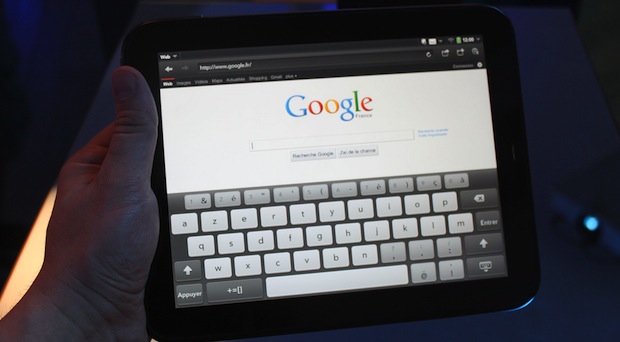HP expected to reveal webOS' fate today: What's on the cards?

HP's chief executive Meg Whitman has reportedly called a company-wide meeting for 10.30 a.m. (PT) in what is expected to be "the announcement" of webOS' fate.
With no firm hints to suggest which way the decision will sway, it will have been Whitman's toughest call to date; a decision that has taken months to deliberate over.

With no easy decision to make, one has to ask: What does Whitman know that we don't?
Outcome 1: HP keeps webOS
Even though the decision is split down the middle, indications have been seemingly positive in recent months.It was only two weeks ago when speaking to French newspaper Le Figaro she hinted that: "the team of 600 people [is] in limbo” awaiting the decision.
Even should she decide to remove webOS into industry's Recycle Bin, though salvaging the multi-billion dollar PC and tablet group, she still has to contend with the albeit-smaller multi-billion disaster that webOS was.
The $1.2 billion acquisition of Palm led to HP owning its own mobile operating system. But as the TouchPad flopped in the first month of it going on sale, the former chief executive took the decision only a fortnight later to pull the plug on the entire division that made the ill-fated tablet.
By gaining the marketshare traction that it did, it effectively gave the green-light for HP to continue selling the product. Why stick with one HP TouchPad when users can fall into the usual upgrading fray, and buy a newer, updated model a year down the line?
In giving HP carte blanche to continue with its somewhat backwards success, the TouchPad brand in itself may have been tarnished, but its unexpected popularity can be continued.
Outcome 2: HP ditches webOS
Whitman can go with Apotheker's flow and decide to ditch the unit.It was former chief executive Leo Apotheker's decision to rid HP of the unit when he was still the top-brass at the technology giant, and split the company seemingly in two. The decision came just shy of 50 days since the flailing TouchPad launched.
But the company is sitting on a cash cow of patents, intellectual property, and beyond all else, a functioning mobile operating system. It could strip out the bits it doesn't need, license off the rest to others, or sell along patents and other fragments of gold bricks it has at its disposal. It could generate billions; money that HP would need to seek and find a new venture to focus its efforts on.
It is likely that Whitman will want to break away from her disgraced predecessor and want to set her own agenda, rather than taking pointers from the ousted former chief executive.
Should she reverse both decisions by Apotheker, giving life back to HP's PC and tablet group and leasing life in webOS, the company will be almost back to where it started over a year ago: in trouble.
Besides the obvious that the crowded mobile market was barely impacted by HP's range of Palm smartphones or webOS-based HP TouchPads, its smartphones were the greatest casualty in the mess that followed.
While the TouchPads gained traction and popularity, the Palm smartphone range was reduced to a relic of the past; an antique to savour the memories of times gone by.
In its death, webOS was popular in tablet form. For smartphones, by rounding off the webOS division gives HP a sigh of relief as it finally gets rid off the bain of its existence.
Anyone want to place bets?
Related:
- Between the Lines: HP's $99 TouchPad fire sale 2.0: So much has changed
- HP TouchPad obituary: In defeat, it was a hit
- CNET: HP to reveal WebOS decision tomorrow?
More from ZDNet:
- HP’s TouchPad fire sale: The fallout
- The six biggest things I learned during the HP TouchPad’s fire sale weekend
- Leo Apotheker’s HP never wanted webOS to succeed
- HP’s Apotheker recounts TouchPad disaster in post mortem
- HP’s future prospects: A look at three scenarios
- HP single-handedly destroys non-iPad tablet market
- If webOS is the perfect mobile OS, why can’t it succeed?